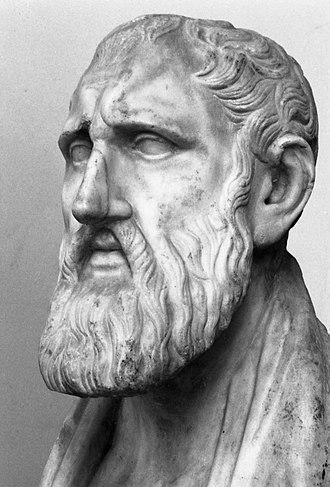
ZENO HO KITIEUS is an Hellenistic philosopher of Phoenician origin (Cyprus). Many scholars consider him as the founder of the Stoic philosophy, which Zeno teaches in Athens from about 300 BC.
Stoicism has its basis on the moral ideas of the Cynics. For Stoics equanimity and serenity derive from a life in accordance with Virtue and Nature. In fact, “happiness is a good flow of life” says Zeno. Then he remarks that happiness comes from the right human Reason when it coincides with the universal Reason (<logos>). And <logos> is the all-governing law/force.
Zeno is different from the Cynics when he says that even the things that are morally indifferent (<adiaphora>) have their own value. This value is in proportion to how <adiaphora> support the natural instinct of self-preservation. Anyway, we must privilege the “fitting actions” (<kathêkon>). This is because self-preservation – and its contributing elements – could never determine happiness which depends only upon moral actions.
Virtue only exists when Reason has the rule. Vice only exists when Reason is forgotten. So Virtue and Vice cannot exist in the same situation and time. Moreover they cannot be increased or decreased.
Actions are either good or bad, due to impulses and desires resting upon free consent. It means that even passive mental states or emotions not guided by reason might be immoral and produce immoral actions.
Zeno ho Kitieus is a philosopher of Phoenician origin (Cyprus) who leaves to the Greek world the first articulated study of human emotions.
Zeno lists four negative emotions: desire, fear, pleasure and sorrow (<epithumia>, <phobos>, <hêdonê>, <lupê>). Furtermore he is probably responsible for distinguishing the three corresponding positive emotions: will, caution, and joy (<boulêsis>, <eulabeia>, <chara>). Those are only three because he lists no corresponding good equivalent for pain/sorrow.